So, Can Chickens Eat Mushrooms?
If your chickens roam freely in these environments, they’ve probably encountered some mushrooms. Naturally, this might spark worries about their health. Even though chickens eagerly consume various foods, not all are beneficial or safe for them. So, can chickens eat mushrooms?
Edible vs. Toxic Mushrooms
When we talk about mushrooms, there’s an expansive range that spans from perfectly edible to highly toxic. Much like the foods we humans consume, chickens, too, have a spectrum of mushrooms that they can safely eat and those that could be detrimental to their health.
Benefits of Edible Mushrooms
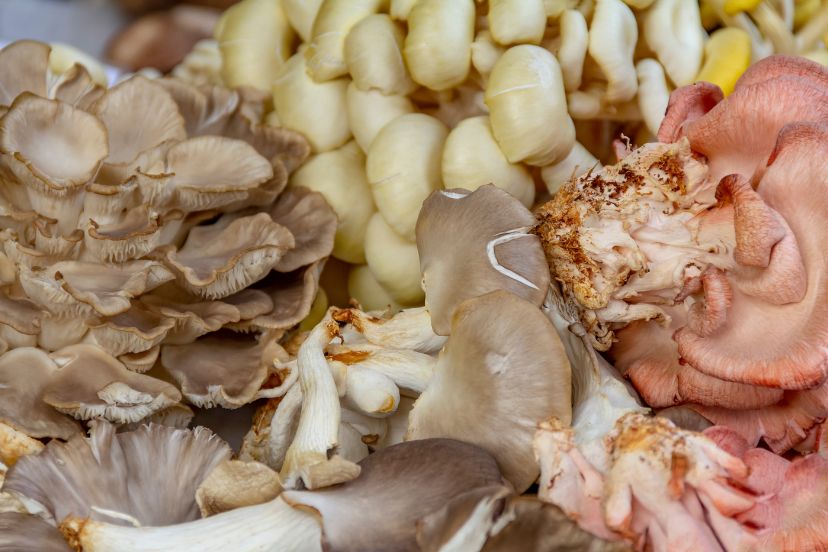
Edible mushrooms are not just a culinary delight; they are nutrient powerhouses. These fungi are known to be rich in protein, B-vitamins, and essential minerals like selenium and copper. Furthermore, mushrooms have a unique antioxidant called ergothioneine, which helps in protecting cells from damage. For chickens, these nutritional benefits can translate to better overall health, enhanced feather quality, and robust immunity. However, it’s crucial to introduce them in moderation and ensure that they are indeed the edible varieties. When served right, they can be a delightful and nutritious snack for your feathery friends.
Risks Associated with Toxic Mushrooms
The world of mushrooms is as mysterious as it is vast. While many are harmless, certain types contain toxins that can be harmful or even fatal to chickens. Consumption of these toxic mushrooms can lead to a range of symptoms. Some might cause mild digestive disturbances, while others can lead to severe neurological issues. In the worst cases, ingestion can result in fatalities. Recognizing these mushrooms and ensuring they’re out of your chicken’s reach is essential. It’s always better to err on the side of caution and prevent any potential risk to your beloved flock. Remember, it’s not just about whether a mushroom is toxic to humans; what’s harmless to us might be harmful to chickens.
How to Safely Introduce Mushrooms to Your Chickens
Mushrooms can be a delightful treat for chickens, but like with any new food, there’s a right way to introduce it. If you’re contemplating adding a mushroom snack to your chickens’ diet, you’ll want to proceed with caution. Here’s a step-by-step guide to ensure your chickens enjoy this treat without any hiccups.
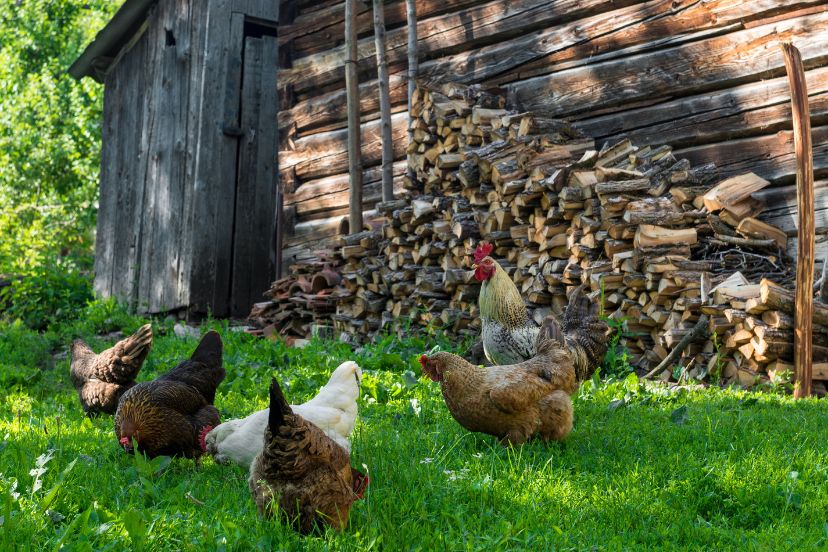
Start by offering a tiny piece of the mushroom. This way, you’re not just introducing a potential treat but also gauging their interest. Some chickens might be hesitant with new foods, while others might jump right in. By providing just a morsel, you allow them to familiarize themselves with the taste and texture. It also ensures that if, by any chance, there’s a mild reaction, it remains limited due to the small quantity consumed.
Once your chickens have had their first taste, the next crucial step is observation. Spend some time watching them closely over the next few hours. Look out for signs of discomfort, such as changes in their vocalizations, restlessness, or digestive issues. Some symptoms to be wary of include droopiness, unsteadiness, or any other unusual behaviors. If you notice any of these signs, it’s a clear indicator that the type of mushroom given might not sit well with them.
However, if after a few hours they seem to be their usual chirpy selves, you can consider the introduction successful. Nonetheless, always remember the key is moderation. Even if chickens can eat mushrooms, it should remain an occasional treat, not a staple in their diet.
The Nutritional Value of Mushrooms for Chickens
Mushrooms, often seen as a culinary delicacy, are not just famed for their unique flavors but also for their packed nutritional profile. When considering chickens, understanding the nutritional benefits of mushrooms can offer insights into why they might be a worthy treat for your flock.
1. Protein Content
One of the primary nutrients in mushrooms is protein. While they might not replace the conventional sources of protein like worms or feeds, they can supplement the protein intake of your flock. Proteins are essential for chickens as they support muscle development, feather growth, and overall body repair. A diet rich in protein can aid in maintaining a healthy and active flock, ensuring they are energetic and display vibrant plumage.
2. Essential Minerals
Beyond protein, mushrooms are a treasure trove of essential minerals. One mineral of notable mention is selenium. Selenium plays a pivotal role in maintaining cellular health and supporting immune functions. For chickens, an adequate intake of selenium can aid in their defense against certain illnesses, ensure a healthy metabolism, and even enhance egg quality.
3. Additional Nutritional Benefits
Apart from protein and selenium, mushrooms also contain other vital minerals and vitamins, including copper, potassium, magnesium, zinc, and B vitamins. These nutrients play various roles in the bodily functions of chickens, from aiding digestion to ensuring robust neurological health.
However, it’s essential to remember that while mushrooms offer these nutrients, they should be introduced and given in moderation. So, can chickens eat mushrooms? The answer is yes, but too much of anything can upset a balanced diet. With the right approach, mushrooms can indeed be a nutritious treat for your chickens, complementing their regular diet.
Mushrooms Chickens Should Definitely Avoid
While mushrooms can be a nutritious addition to the diet of many creatures, including chickens, there are certain varieties that should be strictly off the menu. The realm of mushrooms includes species that are not just toxic to humans, but to poultry as well. Let’s delve deeper into the types of mushrooms that are a big no-no for your feathered friends.
- Death Cap (Amanita phalloides): As ominous as its name sounds, the Death Cap is one of the most toxic mushrooms out there. It contains potent toxins that can lead to liver failure. Even a small bite can be lethal for chickens.
- Destroying Angels (Amanita virosa, Amanita bisporigera, and others): Similar to the Death Cap, the Destroying Angels are part of the Amanita family and are incredibly toxic. Consuming them can result in severe gastrointestinal issues, followed by liver and kidney damage.
- Fly Agaric (Amanita muscaria): Recognizable by its bright red cap with white spots, this mushroom is less toxic than the Death Cap or Destroying Angels but can still cause gastrointestinal disturbances and neurologic signs if consumed by chickens.
- False Morel (Gyromitra spp.): While they might resemble the edible true morels, false morels contain hydrazine toxins that can be harmful to both humans and poultry.
- Little Brown Mushrooms: This is a term used to describe a variety of small, brown-colored mushrooms, many of which can be toxic. Due to their vast diversity and the challenge in identifying them, it’s best to avoid them altogether.
- Autumn Skullcap (Galerina marginata): This little mushroom contains the same deadly toxins found in the Death Cap. Even a small amount can be deadly for your chickens.
Remember, the names of some of these mushrooms do provide hints about their lethality. But beyond their names, it’s essential to recognize their appearance and ensure that they are nowhere near your free-ranging chickens. While this list comprises some of the most common toxic mushrooms, it’s crucial to research local varieties in your area that might pose risks. When in doubt, always keep your chickens away from unidentified mushrooms. Safety first!
Alternatives to Mushrooms
While mushrooms can be a nutritious treat for chickens, some poultry keepers might be hesitant due to the potential risks associated with toxic varieties. Fortunately, there’s a whole world of alternative treats that can be offered to your flock without the uncertainty mushrooms might bring. These alternatives are not just safe but also pack a punch in terms of nutritional benefits. Let’s dive into some of these alternatives.
Mealworms
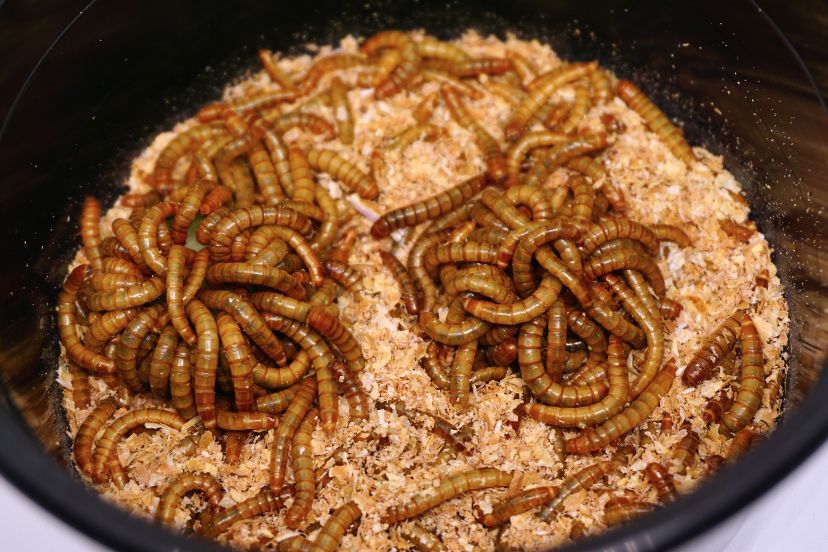
Mealworms are a favorite among many poultry keepers, and for a good reason. These wriggly treats are packed with protein, essential for muscle development, feather growth, and general vitality in chickens. They can be offered dried or alive. Watching chickens excitedly chase after live mealworms can also be a source of entertainment for many poultry enthusiasts. Furthermore, mealworms can be an excellent tool for taming and training your flock, making them more accustomed to human interaction.
Veggies
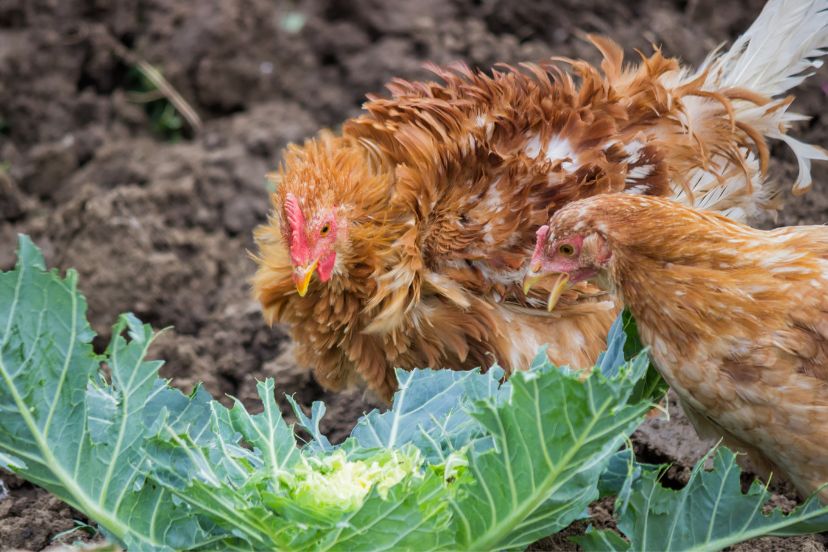
Vegetables offer a broad spectrum of vitamins, minerals, and dietary fiber, essential for the overall health of chickens. Popular choices include leafy greens like kale, spinach, and lettuce, which are hydrating and filled with essential nutrients. Other veggies like carrots, cucumbers, and peas are equally cherished by chickens. It’s best to offer these raw and chopped into manageable sizes. During hot weather, cold veggies straight from the fridge can be a refreshing treat.
Fruits
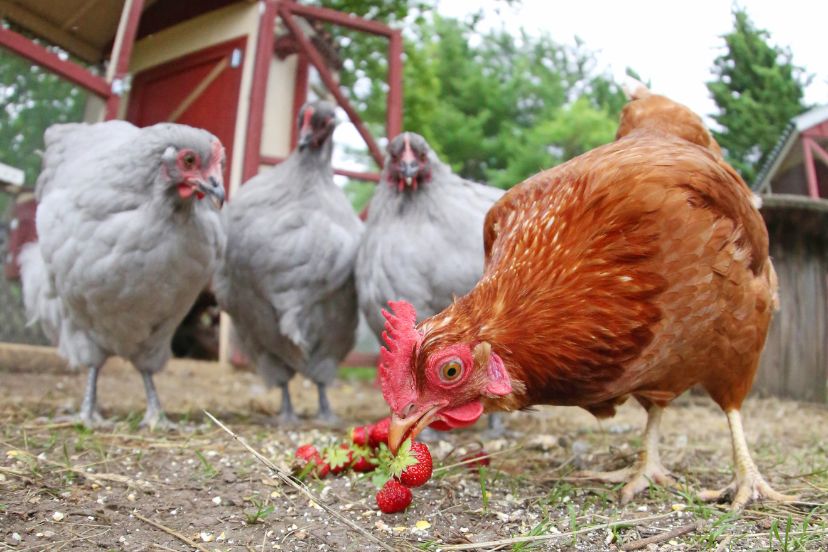
For a sweeter alternative, fruits can be a hit among chickens. They are filled with antioxidants, vitamins, and natural sugars that provide a quick energy boost. Common favorites include berries (such as strawberries, blueberries, and raspberries), watermelon, and apples. When offering fruits, it’s essential to remove any seeds, especially from fruits like apples, as they can contain compounds that might not be safe for chickens in large amounts.
Grains and Seeds
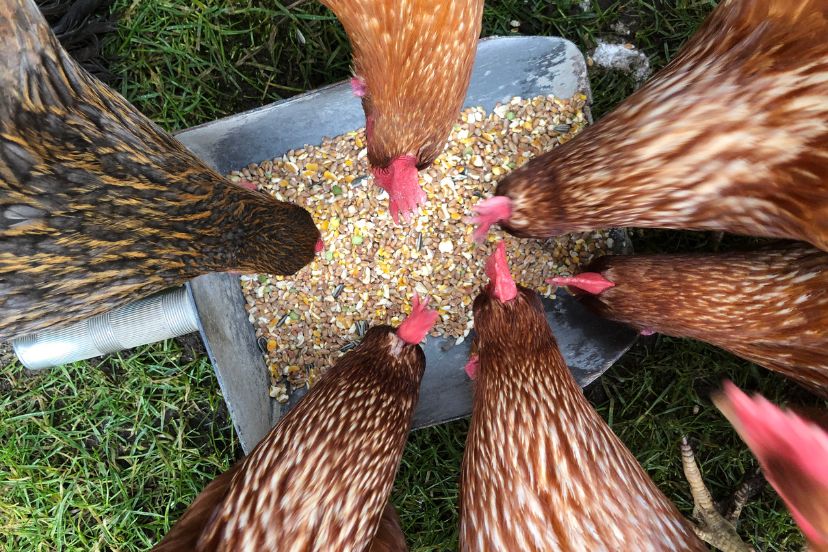
Whole grains like oats, quinoa, and barley can be a nutritious addition to your chicken’s diet. They are packed with carbohydrates, providing the much-needed energy for your flock’s daily activities. Seeds, like sunflower or pumpkin seeds, are also great treats, loved for their taste and the fun pecking experience they provide.
In conclusion, while mushrooms can be a unique treat for chickens, there’s an array of alternative foods that are safe, nutritious, and equally cherished by the flock. Offering a mix of these treats ensures variety and meets the different nutritional needs of your chickens.
Testimonies from Poultry Keepers
Jenna, a seasoned poultry keeper from sunny Florida, has a particular fondness for mushrooms, not just for herself but for her chickens too. She swears by the shiitake mushrooms, which are native to East Asia but have become popular worldwide. Shiitake mushrooms, known for their rich texture and umami flavor, are also packed with nutrients.
Jenna mentions that she started offering shiitake mushrooms to her hens after researching their nutritional benefits. Not only are these mushrooms safe, but they also seem to be a hit among her flock. They enjoy pecking at the soft, flavorful flesh, and Jenna believes it has contributed to their overall health and the quality of their eggs. She, however, ensures that the mushrooms are clean and free from any additives before offering them to her hens.
On the flip side, we have Tim from Texas, a poultry keeper with years of experience under his belt. While Texas boasts a diverse ecosystem with a wide variety of mushrooms sprouting in the wild, Tim exercises caution. He emphasizes the unpredictability of wild mushrooms, given the plethora of species, many of which can be toxic.
Tim shares an incident where a fellow poultry keeper in his community lost a couple of hens after they consumed unidentified wild mushrooms. Since then, he has been vocal about the potential risks and always advises against letting chickens consume any wild mushrooms. According to Tim, the potential risks far outweigh the benefits, and it’s always better to be safe than sorry.
Both Jenna and Tim’s perspectives highlight the importance of knowledge and caution. While certain cultivated mushrooms like shiitake might be safe and beneficial, wild varieties pose potential risks. As poultry keepers, it’s essential to strike a balance, ensuring our flocks enjoy a varied diet without compromising their safety.
FAQs
Can chickens eat wild mushrooms? It’s best to avoid them. It’s hard to distinguish between edible and toxic varieties in the wild.
How often can I treat my chickens with mushrooms? Once in a while is fine, but it shouldn’t be a regular part of their diet.
My chicken ate a wild mushroom. What should I do? Observe for any adverse reactions and contact a vet immediately if concerned.
Can chickens eat cooked mushrooms? Cooking can break down some toxins, but it’s best to provide only known edible varieties, cooked or raw.
Why do chickens seem to love mushrooms? Chickens are curious by nature. They’re inclined to peck at and try various foods, including mushrooms!




